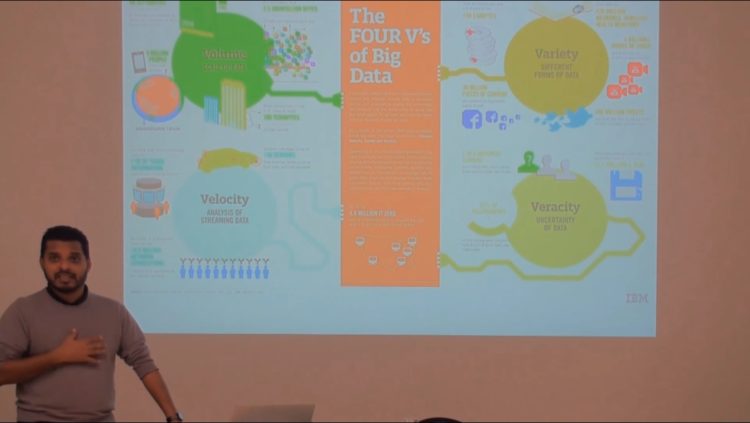On March 28 2014, as part of the cooperation between the ICT4Peace Foundation and the ETH International Security Network (ISN), the ISN hosted a Roundtable Discussion on “Big Data, ICTs and Social Media in Times of Crisis,” which featured Sanjana Hattotuwa of ICT4Peace Foundation.
Sanjana’s complete presentation and the Q&A session with participants which followed is now on ISN’s website, which among other things focuses on how web-and mobile-based media have enhanced our ability to respond to complex emergencies and political processes.

In the first segment on ISN’s website, Sanjana Hattotuwa outlines how Big Data, as disseminated by ICTs and social media, is increasingly functioning as the “nervous system of the world.” In the second segment, Mr Hattotuwa performs two tasks – he elaborates on the links between Big Data and traditional media reporting, and then details how data derived from ICTs has been increasingly used to cope with natural disasters and other complex emergencies. In the following segment, Mr Hattotuwa concludes his presentation by outlining how Big Data can influence policymaking at all levels of government. In doing so, he also explores the accompanying challenges and unresolved questions associated with this mountain of information, which include the safeguarding of human rights and privacy, and the concept of ‘sunset clauses’.
In an extract from the question and answers session, Mr Hattotuwa revisits the question of whether Big Data does provide added value for policymakers, particularly given its ability to lead them astray on the conclusions they draw. He also considers the impact this aggregated form of data is having on institutional transparency and accountability, and the extent to which these norms are being incorporated into the operational DNA of government agencies.
In the final video segment, we see Mr Hattotuwa grapple with other important data-related questions. For example, how will Big Data and the new media that disseminates it impact the legitimacy of states and international institutions? And furthermore, are these political entities agile enough to respond to the anti-institutional sentiments that have spread as a result of new media and the information it shares?
The question and answer session was chaired and moderated by Peter Faber, Head of ISN Strategy and Operations.
ICT4Peace Foundation would like to thank Julia Kreienkamp and Piotr Switalski of ISN for the preparation of this meeting.
